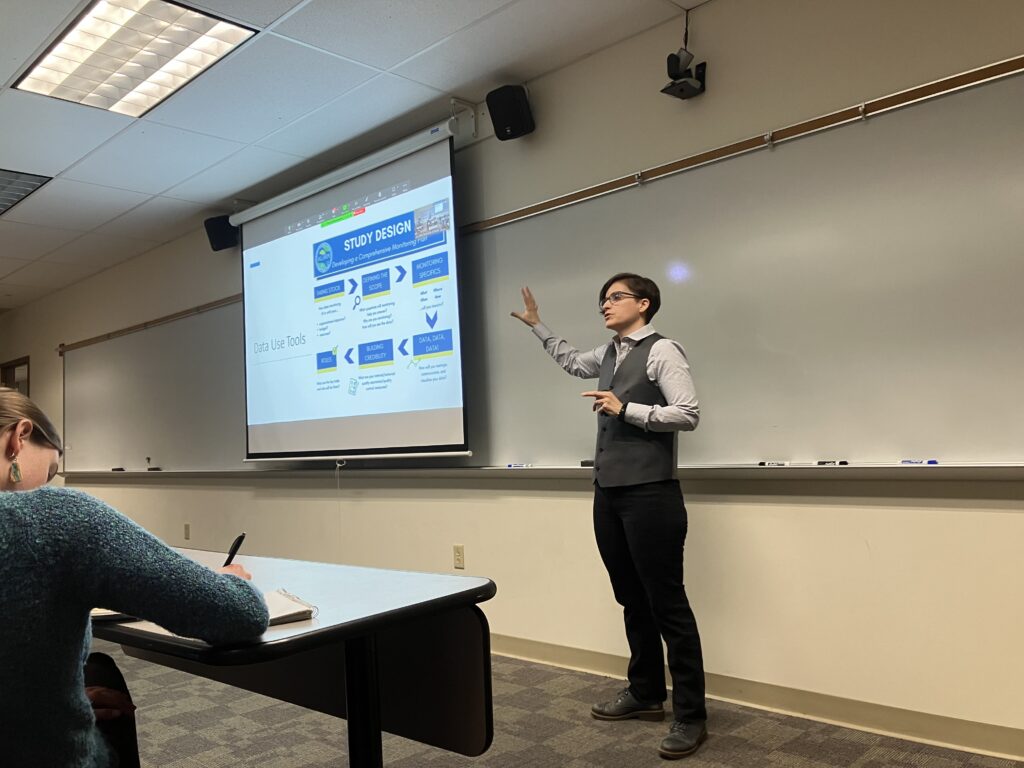On Thursday, February 15th, ALLARM co-hosted the first Earth Issues Seminar of the semester, with our very own ALLARM director, Jules Vastine, as the event’s presenter! Members of the Dickinson College community including students, professors and staff, joined us in Kaufman Hall, while volunteer monitors, partners and colleagues tuned in virtually. The seminar highlighted the importance of participatory science being leveraged to support environmental and human health protection, tapping into their knowledge as ALLARM’s director, as well as from their time with the EPA in 2023.
Although this was not my first time attending one of these Environmental Studies/Science department seminars, it was special to me because it both highlighted the organization that I am working at, and I had the privilege of introducing Jules at the start of the lecture. During Jules’s presentation, I feel like I started to understand where multiple aspects of the monitoring process combine and overlap with one another to support both volunteers and data collection. Hearing about the governmental work being done side by side with volunteer monitors was also new to me and highlighted the hard work volunteers put into collecting data. One thing that I really took out of the event was the idea that every piece of data collected is important and has a story to tell. The volunteers dedicate a ton of their free time getting vital information for many purposes, ranging from education to management to regulatory decisions. All data is necessary and important! Another highlight of the event was also being able to sit with fellow ALLARMies who were also in attendance and talk about the importance of c-science both before and after the talk as we checked in with each other. I am really starting to feel a part of the ALLARM family and am so happy that I was able to attend this talk with fellow colleagues that I can also call my friends!
Another sticking point of the event for me was the accessible and reproducible data management models that groups employ. The example that Jules gave about the Georgia volunteer monitoring program that helped South Carolina implement accessible databases for volunteers to input their data was really inspiring. It showed me how much of a difference we can make if we work together and help those who could benefit from it. Engaging in participatory science is a community effort and can be supported but multiple parties even when monitoring seems difficult. Having a group to rely on when someone might need assistance is integral! I learned a lot from Jules’s presentation, and I can’t wait to get more involved in the c-science aspect of ALLARM!
